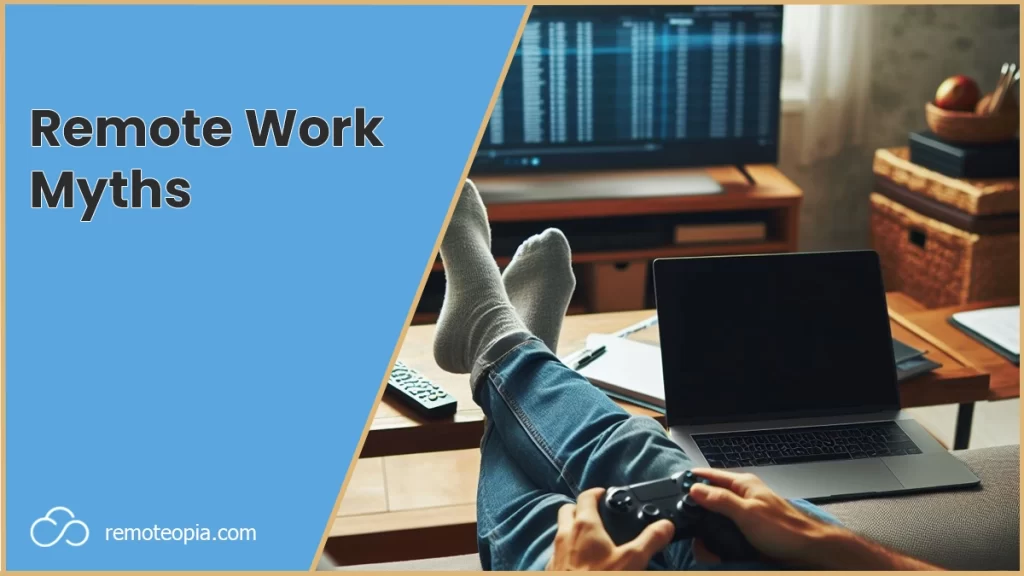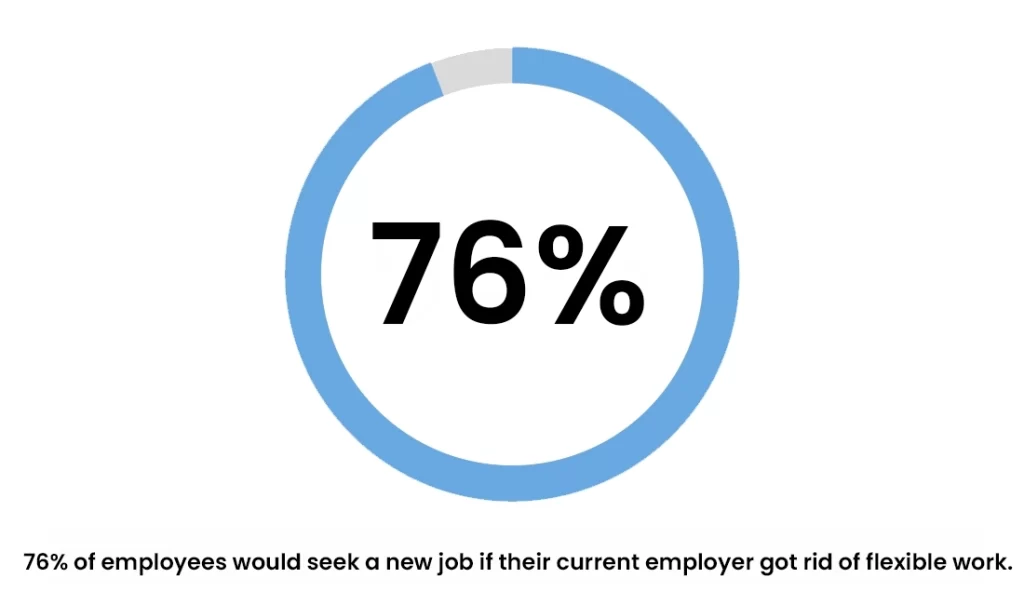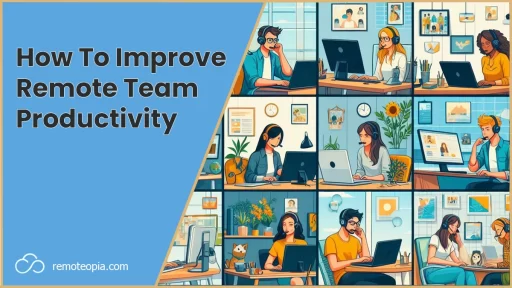
Let’s bust some common remote work myths.
MYTH 1 – Remote workers are less productive
I can’t speak for the productivity of everyone working remotely, but the idea that remote workers are less productive than their office counterparts is definitely a remote work myth.
In fact, employers can find that they get more work done from their staff when they’re in remote locations.
Often, a better work-life balance that comes with working from home or remote means that employees are happier and therefore more productive in their work.
No commute can also equate to more work hours completed as more flexible working schedules give workers the power to undertake their task when they’re most focused and driven.
On a slightly more negative note for remote workers, blurred work-life boundaries can mean that it’s harder to distinguish between personal and work lives in remote environments resulting in more work being done even if it can be to the detriment of the employee.
MYTH 2 – Remote work is a temporary trend
Did you know:
By 2025, 32.6 million (22% of the population) of Americans will work remote.
(Forbes)
Covid changed the way we looked at work and whilst the working world was in limbo, remote work was only a trend.
As the dust has settled, it’s become clear that remote work is not only a viable option, but one in which employees and businesses can flourish.
My conclusion on this myth is that the 100% remote work we saw during the pandemic was a temporary trend,
Longer-term remote working has forged its way into the working world long-term, with many organizations now adopting it into a hybrid work structure that provides staff with the best of both worlds.
MYTH 3 – Remote workers are always available
Being remote doesn’t mean that you have to be constantly connected to work communication tools, although some workers can make themselves available most waking hours.
Whilst that is the choice of the individual, there should never be an expectation from a company that just because a team is working remotely that they should be available to work, or at least answer queries 24/7.
To keep staff happy and motivated it’s important that employers respect the boundaries of employees and that employees recognize the occasional need to show some flexibility with their time, especially as the global workforce becomes more interconnected.
MYTH 4 – Remote work is only for introverts
Remote work can sometimes be seen as a life of solitude for some, but for most, the ways in which technology makes us more connected than ever before rarely make this the case for most.
76% of employees would actively seek a new job if their current employer got rid of flexible work options. (Greenhouse).

With 3 quarters of workers making such a strong statement, it’s clear that remote work is not just something that appeals to the introverted side of society.
Remote workers have adapted their remote work lives to suit their personality preferences, whether you fall on the extroverted or introverted side of the spectrum.
MYTH 5 – Remote workers are less connected
Whilst nothing will replace face to face interactions, it’s a myth that remote workers are less connected.
We could look at this in 2 ways.
From a communications standpoint, there’s never been more ways to connect to remote workers, with video conferencing, email, Zoom and Slack (pretty much being the Whatsapp of the corporate world) , so many tools are available to keep us connected.
Connected as in feeling a sense of camaraderie and shared vision with other employees and the company?
Well, I’d say that’s down to the company’s own communication procedures.
I think that a lot of businesses have had to adapt to the best ways to communicate with remote staff and some are still adapting.
With good, clear and regular manager and company side communications with teams, there is no reason that dispersed workers shouldn’t feel connected to the business they work for.
If they don’t, businesses might want to review their internal comms, onboarding and introduce regular ‘All Hands’ meetings to help improve the situation.
MYTH 6 – Remote work is easy
This myth is quite a vague one. Some jobs can be easy, some hard – and that’s generally what defines how difficult your work is, the nature of the job, not where it’s done.
Remote work does give people a better work-life balance for the most part.
So remote work isn’t easier, but it does make people happier, which makes their lives and their working lives easier.
I think that’s a better way to look at it.
MYTH 7 – Remote work causes too many distractions
I was actually more distracted when I was in the office 5 days a week.
With people coming over to my desk to talk about work a few times a day, social chatter amongst the table and the inevitable arrival of unexpected snacks in the office.
It entirely depends on your working situation in the office, at home, or remote work location to determine the amount of distractions there are around you.
So this one can’t be solely attributed to remote work.
Remote Work Myths Conclusion
If you have any queries about what you’ve heard remote work life is like and would like some clarification – send me a message via the comments section below and I’ll be happy to offer my view.

James Waite
Founder of Remoteopia, James has worked in remote roles for 6 years. After a stint in recruitment, he now works as a director of website strategy in tech.




